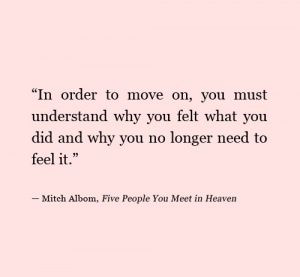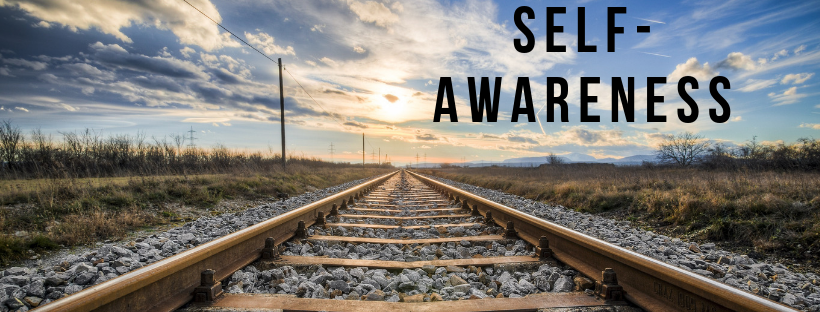Self-awareness. Our ability to have a clear perception of ourselves. Our strengths and weaknesses, our emotions & their origin, what motivates us, our core beliefs and what makes us tick.
I wanted to write this post because I am yet to interact with a person who wouldn’t benefit from further developed self-awareness. Due to the nature of my training, it was so important for me to develop a sound knowledge of myself. I had to know my triggers, what could I manage and what couldn’t I. Who would I turn to in my own existential crisis? What could or would shake my core values?  When was it all too much, for me? Ethically, I had to be in a place where I had answers to all of these before I sat in front of someone, ready to hear all their story and feelings. I didn’t want mine to entangle with theirs or for mine to hinder their journey.
When was it all too much, for me? Ethically, I had to be in a place where I had answers to all of these before I sat in front of someone, ready to hear all their story and feelings. I didn’t want mine to entangle with theirs or for mine to hinder their journey.
“In other words, self-awareness allows Counsellors to understand the differences between their lived experiences and their client’s lived experiences. This can help Counsellors be more non-judgmental towards their clients and help them better understand their clients.”
I’ve done creative activities (which are my favourite), written countless assignments about my reflections and maintained journaling to get to know me better.
So I want to share all this with you. I personally believe, that although knowing where your “stuff” comes from will not be the magic wand you may have wanted, it’s a really great place to start. Plus it’s really interesting to learn about ourselves so give it a go just for that.
Once you get to a place where you know you then your self- confidence will develop and strengthen. The more you’re aware of yourself and what you stand for the more you’ll stand for it. It gives an amazing depth of understanding, compassion and strength – there is very little that can shake my confidence to its core and that’s because I’m familiar and aware of my core. I believe in it and I trust it – although it’s taken me some time to get to this point.
Tools
I’m going to share with you the  three tools/techniques I believe to be the most effective in embarking on this journey.
three tools/techniques I believe to be the most effective in embarking on this journey.
Questions
These questions are a great place to start to get a general idea of you. Although any question that asks something about you is great, these are just some examples. The internet is full of them! Spend some time with them, PLEASE make sure you go into answering these with a compassionate mind-set. Do not go into this if you’re only going to slate yourself. You’re allowed to spend time getting to know yourself, I bet you’ll find yourself really interesting. Share any of these answers with me too, I’d love to know!
| What am I good at? | What is the most important thing in my life? | What relaxes me? | What makes me sad?
|
| What am I so-so at? | Who are the most important people in my life? | What’s my definition of success? | What makes me happy?
|
| What am I bad at? | How much sleep do I need? | What type of worker am I? | What makes me angry? |
| What makes me tired? | What stresses me out? | How do I want others to see me? | What type of person do I want to be? |
| What type of friend do I want to be? | What do I think about myself? | What things do I value in life? | What makes me afraid? |
And onto the creative ones…
creative ones…
Blob man tree (my favourite)
I love this one because it’s so simplistic yet so effective – especially if you’ve never been encouraged to use an emotional vocabulary before. In short, these are images of Blobs, doing all sorts! Some are just holding on to a tree branch, some are on their own, some are in a group (you get the idea) and you connect your feelings to the one that speaks to you. It helps you create a visual representation of what you are feeling. From this point you will be better equip to communicate your feelings with others.
“The Blobs are simple. They deal with deep issues using the primary languages we learn from infancy – feelings and body language. This is why they are used with children as young as 4, all the way through to the elderly.”
Relate to Colour
I have found this one to be incredibly effective, especially if verbal communication of feelings is difficult for you or you want to really know you’re true feelings. Relating a colour to an emotion works on more of an unconscious level and I’ve seen this activity really surprise people. It’s also really useful for those of us who haven’t been encouraged to use our own autonomy when communicating/formulating feelings – to those of you who find yourself saying that you just don’t know what YOU feel, this is a good one for you. you know how your parents, or your friends, partners or work colleagues may feel about it but maybe not you.
I know that there is the standard idea that colours represent certain feelings e.g. red=anger but you can ignore those ideas. What does that colour mean to you? If red makes you feel peaceful then that’s perfect. Go with that.
Think of a situation, question, scenario or anything that you want clarification on. Get yourself some paper, get your mind into a zone of compassion, get an array of colours, bring the query to your mind and pick a colour – without too much thought. Just look at your colours and pick. You don’t have to draw a picture but you can if you want, you can just do random lines if that feels natural but go with what does feel organic. Once you’re finished take a look at what you’ve created. What’s it telling you? If you want to bounce any ideas off me about what you’ve created please do so 🙂 we can look at it together if you’d like!
These would be my top 3 suggestions for starting off your self-awareness journey. Other techniques I have used on myself are “blank face” pictures where I draw my own face and emotions onto it, the use of mood cards to help me identify what I feel, creating names for my feelings so I’m better able to communicate them and challenging myself on what values are mine and what are others.
I would like to say at this point, the journey of self-discovery and self-awareness can bring up some emotions that you’d rather not have to actively experience. If that does happen, and this happened to me more than once, this is what I’d suggest:
- Go into any self-awareness exercise with an open, compassionate, non-judgmental, loving and accepting mind-set. Please be mindful of the further hurt you can cause yourself if you abuse yourself during this state of vulnerability. You’re allowed to do all of this, everything is okay.
- Have some support system in place in case your feelings become overwhelming. You all have someone because you all have me for support so if this triggers you in some way you can always DM me. Other than that, think of who you can speak with openly, who would listen and not judge and maybe even share with them the journey you want to embark on.
- This is a journey – don’t expect to know yourself inside out in 24 hours. Self-awareness is a journey because
 we are always developing so be patient with yourself. Don’t give yourself unrealistic expectations.
we are always developing so be patient with yourself. Don’t give yourself unrealistic expectations. - Enjoy it! This is interesting, I’ve loved getting to know me, and it’s helped me so much. Although sometimes I struggle to modify behaviour that I don’t love, I still know where it came from and why I do it which does help. It helps with cutting myself some slack because I get why I did whatever I did – not excusing it just offering myself some compassion.
I hope you all found this helpful in some way or another. This is such a worthwhile journey to go on with yourself, it’s so vitally important that we know who we are. In-congruence leads to a multitude of mental health difficulties so let’s be congruent with ourselves and accepting.
Let me know your thoughts, do you think this could help you? Have you undertaken such a journey? Is it something you’d like to do? I’d love to know 🙂

This is a great post, and very well written! I loved reading it, and it’s definitely helpful for me. I think I’ve gained a bit more self-awareness since I started therapy, and I really liked your putting colours to emotions method, this is something my therapist gets me to do! I’m excited to try the activities you suggested. Thank you ❤ xx
LikeLiked by 1 person
Thank you so so much! I’m glad you can relate to the colours, it’s such a great technique! Let me know how it goes ❤ xx
LikeLiked by 1 person
I love how you included those questions, I am actually going to take time to think about them and properly answer them for myself because we all need to be more self aware right?! x
LikeLiked by 1 person
Awh thanks! Yeah go for it, see what you can learn about yourself 🙂 thanks so much for reading and commenting x
LikeLike
Another great article! I’m particularly interested in trying out the questions so I’m going to give that a go asap x
LikeLiked by 1 person
Thank you so much! Let me know how it goes, I’d love to know how you find it. I may even try to re-do them myself 🙂 x
LikeLiked by 1 person
I really love that you added the questions, I’ll be giving these some thought tonight ❤️
LikeLiked by 1 person
My colour is green, I feel calm and relaxed and connect to green, I thought it was blue but green kept coming to me!
LikeLiked by 1 person
I love that you recognised green kept coming to you! That’s so great! I hope it’s been helping recently in some way or another x
LikeLiked by 1 person
I really enjoyed reading this & it really made me think! Yellow is my calm, happy colour. I’m going to use this to write in my journal later! X
LikeLiked by 1 person
Thanks so much! Ooo good choice! Blue is mine for calm and happy 🙂 enjoy, hope it helps 🙂 x
LikeLiked by 1 person
This is so well put. Self-awareness helps in many ways. I like the idea of relating to colours! I’m running off to share this now because it’s wonderful.
LikeLiked by 1 person
Thank you so much my lovely! Yeah I love the colours one, it’s so effective! Eeek thank you ❤ p.s you're an angel x
LikeLike
What a great post thank you for sharing your ideas for self care- it’s something that I’m trying to work on!
LikeLiked by 1 person
Thank you! I hope it has helped in some way 🙂 x
LikeLike